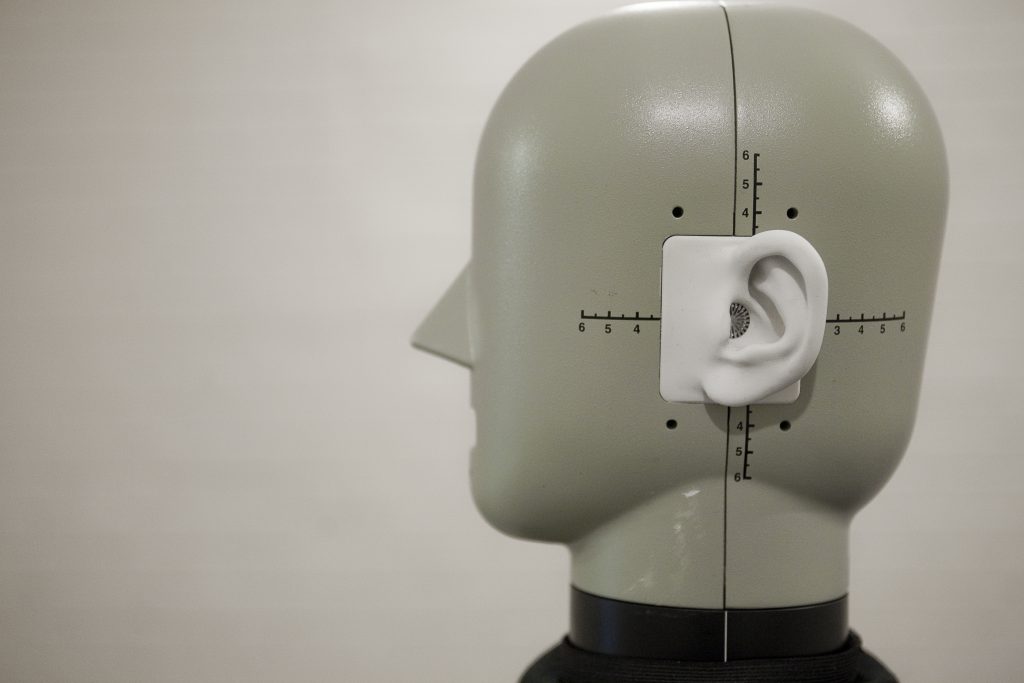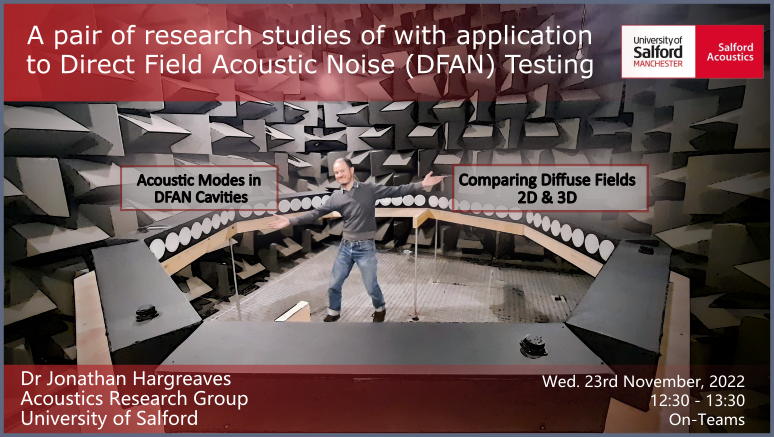Wed 23rd November 12:30 – 13:30. This seminar will be held on Teams.
Dr. Jonathan Hargreaves j.a.hargreaves@salford.ac.uk
Abstract
This seminar comprises a pair of shorter talks that respectively consider challenges that occur at low and high frequencies when undertaking high-intensity Direct Field Acoustic Noise (DFAN) Testing of aerospace hardware such as satellites.
Part 1: Acoustic Modes in DFAN Cavities
It is well known that acoustic cavities have frequencies at which certain free-response ‘modes’ of propagation respond especially strongly. In the absence of significant damping, these cause peaks of high SPL in the frequency response as well as spatial non-uniformity and temporal ringing. The spatial non-uniformity is especially problematic since it means the excitation signal cannot be ‘EQ’d’ to compensate, since the SPL is different in different positions. When performing DFAN tests of aerospace hardware such as satellites, the enclosing arrays of loudspeakers is so large that the cylindrical air cavity it contains can exhibit its own modes, which could cause over-testing in some positions and under-testing in others. In this work, it is investigated how a simple FEM simulation can compute Q-factors for these modes and identify which will be problematic. How this might inform system design is discussed.
Part 2: A Study comparing Diffuse Fields in 2D & 3D
DFAN systems aim to replicate the sound field that a test article would experience in a reverberation chamber. This is a 3D diffuse field, in which sound energy has equal probability of arriving from any direction. But DFAN loudspeaker systems are arrange in a cylinder, which suggests that sound energy may arrive predominately from the side – a ‘2D’ diffuse field. This talk implements an idealized experiment to investigate what consequences this situation might have for structural excitation of the test article and how detectable it would be with standard metrics. It then suggests another new approach for measuring this issue and some mitigations that could be applied were it discovered to be a problem.
Biography
Jonathan was awarded an MEng in Engineering & Computing Science from the University of Oxford in 2000 and a PhD in Acoustic Engineering from the University of Salford in 2007, where he remains as a Lecturer in Acoustic and Audio Engineering. He is best known for his research on novel computational acoustic algorithms, but he also has strong research interests in loudspeaker design and characterisation, material characterisation, and microphone arrays. He is a member of the IOA Research Coordination Committee and the UK Acoustics Network Special Interest Group for Computational Acoustics. Jonathan has had the pleasure of being involved in a wide variety of public engagement activities, including a number of TV appearances, and is passionate about performing, engineering and enjoying live music. He was awarded the UK Institute of Acoustics’ Tyndall Medal, for outstanding contribution to acoustics research and education, in September 2016.

